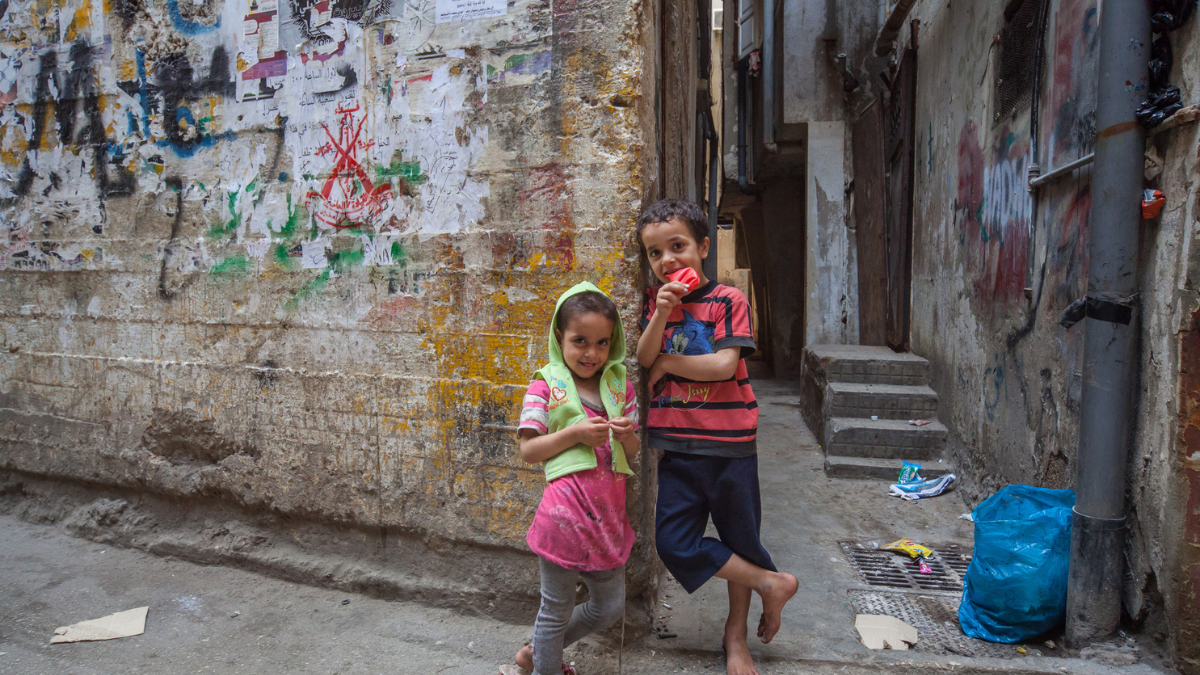Refugee children with mental health issues can benefit from innovative telephone therapy, new research suggests
Telephone therapy delivered to refugee children results in a significant drop in mental health symptoms and a far higher completion rate of treatment compared with in-person therapy, according to a first-of-its-kind study led by the University of Surrey.

In a pilot randomised controlled trial (RCT) involving 20 refugee children in the Beqa'a region of Lebanon, 10 received in-person treatment as usual (TaU) and 10 received telephone therapy delivered by local trained lay counsellors, both provided by Médecins du Monde. At the beginning of each treatment session, children's symptoms were assessed with a questionnaire.
The findings show that there was a strong and consistent decline in mental health symptoms in the group receiving telephone therapy over the course of treatment. Importantly, 60% of this group completed a full course of treatment, with 90% overall receiving some treatment, compared to no children completing treatment in the TaU group and only 60% receiving some treatment.
In Lebanon, which has hosted large numbers of Syrian refugees since the start of the civil war in Syria in 2011, there is very limited mental health care provision. However, most refugee families own mobile phones, which provide a more accessible means to deliver treatment. The research team sought to establish whether an adapted telephone therapy programme could be effective in reducing mental health symptoms in refugee children compared with in-person treatment.
The study recruited children aged 8–17 years old from Syrian refugee families living in tented settlements in the Beqa'a region of Lebanon, with consent taken from the parent or primary caregiver and the child. All children met diagnostic criteria for common mental health disorders, including depression, anxiety and post-traumatic stress disorder.
The team used the Common Elements Treatment Approach (CETA), a proven cognitive behavioural therapy programme, and adapted it for phone delivery (t-CETA) with the help of locally trained lay counsellors. In phase one, the original CETA manual was modified for t-CETA, tested and refined with 23 children, with 13 receiving face-to-face CETA and 10 receiving t-CETA. Phase two then piloted this adapted approach in the RCT with a different group of 20 children.
In addition to the key findings, the delivery of t-CETA improved access to treatment, as families did not have to travel to clinics or fit the treatment around working hours. It also demonstrated that local lay counsellors can be successfully trained to deliver t-CETA under the supervision of experienced clinicians.
The team experienced some challenges when recruiting participants to the study, including families being unable to attend the in-person appointments, perceived stigma of accessing mental health services, and a lack of understanding around what treatment involves. As a result, the sample size was smaller than anticipated; however, the success of the study indicates that t-CETA is a promising, and scalable, treatment option.
Our study highlights the importance of making mental health services more accessible and culturally relevant in countries where there are barriers to receiving therapy. Despite evidence of mental health problems among refugee children and their families, most individuals do not seek treatment. The results of our trial are an important first step in finding a solution, with a larger trial needed to confirm the positive effects.Professor Michael Pluess
The study has been published in the journal Conflict and Health.
Related sustainable development goals


Featured Academics
Media Contacts
External Communications and PR team
Phone: +44 (0)1483 684380 / 688914 / 684378
Email: mediarelations@surrey.ac.uk
Out of hours: +44 (0)7773 479911
